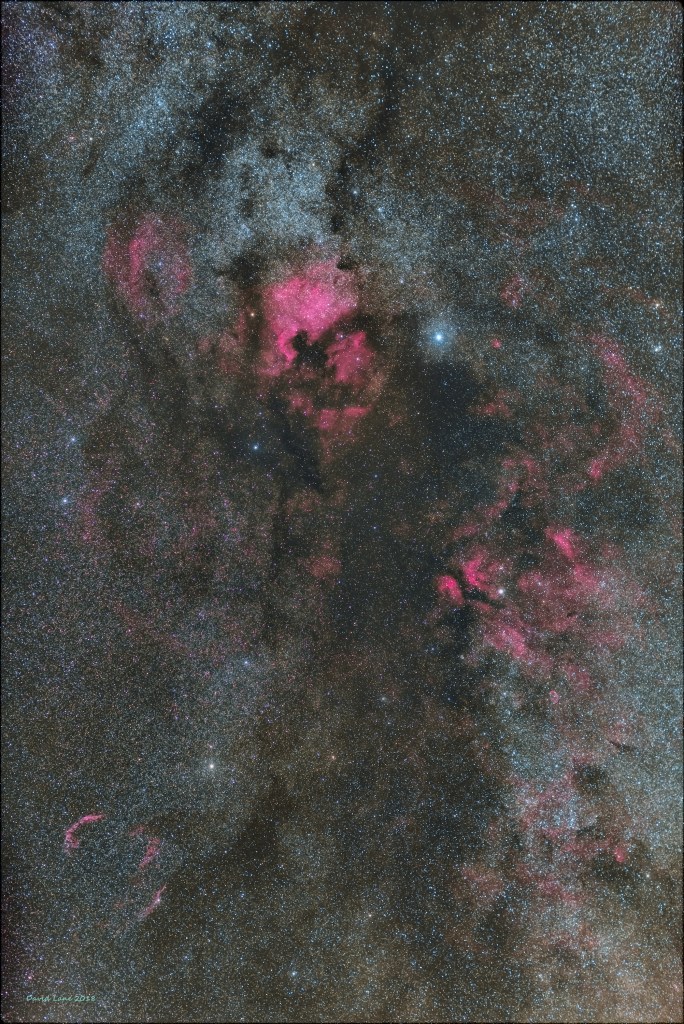[ad_1]

Cygnus Pelican to the Veil
Cygnus is such cool area of the sky. There are so many cool areas of Hydrogen Alpha Emissions (called Ha) in this region. These are that areas you see as pink in the image. The HA emission is 656 nanometers which is a bit above the color red on the light spectrum. Here a bit from Wikipedia on H-Alpha emissions.
H-alpha (Hα) is a specific deep-red visible spectral line in the Balmer series with a wavelength of 656.28 nm; it occurs when a hydrogen electron falls from its third to second lowest energy level. H-alpha light is important to astronomers as it is emitted by many emission nebulae and can be used to observe features in the Sun‘s atmosphere, including solar prominences and the chromosphere.
H-Alpha emissions are typically emitted by dense nebulas which are the star-forming regions of galaxies. Trillions of tons of dust and remnants of supernova explosions gather together like a snowball rolling downhill slowly gathering more and more material until gravity compresses the material to the point it heats to ignition. Then in a massive explosion that jets out leftover material and creates a Herbig-Haro object that is a protostar.
All the pink areas and dark dust areas are stars in evolution, from a clump of dust to the largest star. All represented in a single picture.
Enjoy! Plus check out the cool way to focus at night I created too!
EXIF: 85mm f2.2 105 x 90secs, ISO 1800
[ad_2]
